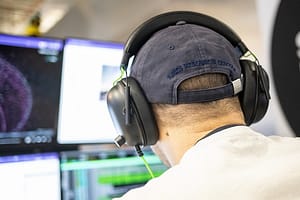Despite having a strategic location on the southeastern coast of Africa and being endowed with natural resources, Mozambique is one of the poorest countries in the world. Almost half of the country’s 32 million citizens live below the poverty line. Qatar was also extremely poor before discovering oil and gas, but is now a world powerhouse thanks to becoming the world’s third largest exporter of natural gas.
Mozambicans are anxiously hoping for a similar transformation and have been preparing the country’s industries and businesses in anticipation. As South African economist Isaac Matshego observes, “Taken on its own, Total’s investment is enormous and has the potential to double the size of the Mozambican economy. The Total and ExxonMobil projects are of absolute importance to the economy… so a lot hinges on these projects going ahead.” But, those two projects are suspended due to violence in the region. For Mozambique to get out of poverty, stability must first return so companies can resume operations and start exporting.
LNG Gold
First discovered in 2010, Mozambique’s proven natural gas reserves of 180 trillion cubic feet are the third largest in Africa behind Nigeria and Algeria. Qatar, as a comparison, holds 10% of the world’s total reserves with 900 trillion cubic feet.
To exploit these reserves, three major LNG projects have amassed investments of over $55 billion. Eni’s project, known as Coral South, is the smallest and is the only one entirely offshore on a floating liquefaction unit. The Mozambique LNG project, led by TotalEnergies, involves the construction of a two-train liquefaction plant with a total capacity of 13.1 million metric tonnes per year. Work at the site was suspended in the spring of 2021. ExxonMobil’s Rovuma LNG project is expected to produce 15.2 metric tonnes per year, but the final deal has yet to be signed.
Once all three projects are operational, revenues for the Mozambican government are expected to reach up to $100 billion over 25 years. Given that Mozambique’s total economy in 2021 was only $14 billion, this is a huge sum.
But as Max Tonela, Mozambique’s Minister of Economy and Finance, explains: “It (gas) is a resource that has enormous potential for economic transformation, not only through the revenues that will come from exports, but also to contribute to increased economic growth and diversification of the Mozambican economy.” It is the expected development of other industries and the services supporting them, thus the creation of jobs that would be game changing.
Progress in governmental gas management
That is why, Max Tonela, as well as other politicians, are anxiously waiting for the two larger gas projects to get started. Politicians have taken seemingly genuine steps to guarantee gas projects benefit the whole country. Regarding revenues, President Nyusi announced in the summer of 2022 that they would create a sovereign wealth fund (like Qatar did) to ensure the anticipated $100 billion in gas revenues would be managed transparently and with the participation of civil society.
The proposed law for the sovereign wealth fund is currently under review and says its mission is to use gas and oil revenues to “leverage the country’s development,” and “contribute to the stabilisation of the state budget against the volatility of oil revenues and accumulate savings for future generations.”
Adding value with other industries and jobs
To ensure foreign investments contribute to the national economy in more ways than revenues, the government has passed “Local Content” rules. Foreign investments are required to add value through “the creation of employment, development of culture and educational levels of Mozambican citizens or by creation/installation of civil infrastructures such as roads, water and power distribution networks or hospitals.” As a result, gas companies have committed to giving preference to Mozambican-owned businesses for contracts and to hiring locals.
The government has thus been working to develop other industries and local competencies that foreign companies might need. This would create a ripple effect in job creation and boosting other sectors of the economy. AMETrade observes that, “…the government is determined to use the exploitation of its massive natural gas resources to achieve economic diversification through the promotion of ancillary industries that will generate the needed local value-added, employment generation and boost government foreign exchange revenues.”
For example, the government created the Beluluane Industrial Park and Free-Trade Zone. It houses 40 companies including Mozal, the second-largest aluminium smelter in Africa. The company employs 5000 people and produces galvanizing coating used to protect steel structures. With an estimated 200,000 tons of steelwork opportunities on the Rovuma and Mozambique LNG projects, Mozal is ready to respond to those needs.
Other local businesses are also waiting for the projects to begin so they can submit bids for contracts with the foreign companies. One such Mozambican company is Mwendo Engineering SA which specializes in manufacturing and repairing pipelines, pumps, valves and other tools specific to the gas and energy sector. Florival Mucave, the company’s president, said their goal is, “also to train young Mozambicans to ensure the transfer of capacity and knowledge and also to contribute to the return of displaced populations to their places of origin, through job creation.” This is the kind of virtuous circle the government is hoping will begin when projects are in full gear.
To fulfill local content requirements, gas companies have also pledged to employ and train locals on their sites. ENI says they have already trained 1,000 Mozambicans and the construction phase of the Coral Sul FLNG and Inhassoro-Temane (Sasol) projects created 3,820 jobs. ExxonMobil expects to create 5,000 local jobs during its construction phase and has planned two million training hours for Mozambicans. TotalEnergies says its project would create thousands of jobs. Hence, the company signed a memorandum of understanding in February 2022 to train 2,500 young people in the region. The first 118 of those to be trained received their diplomas on July 29th, 2022. On November 18th, TotalEnergies also signed an MoU with the Industrial & Commercial Institute of Pemba, aiming at training an additional 390 young people in Cabo Delgado in the fields of Oil and Gas Processing, Industrial Electricity, General Mechanics and Hospitality and Tourism.
Security is needed first
Mozambique’s economy is ready to take off, but is currently in the starting blocks while the two larger LNG projects are on hold. Government officials and local businesses have worked diligently to prepare for the exploitation of the country’s natural gas in the hopes of becoming the African Qatar, but no one expected a violent insurgency would disrupt everything.
As Stuart Culverhouse, head of sovereign and fixed-income research at Tellimer Research, observes: “The Mozambican government probably needs to ensure the security of Cabo Delgado, where the onshore LNG projects are located, although this is a difficult task and has required international help. The projects are four times Mozambique’s GDP. They should boost growth, fiscal revenue and improve the external balance, but that will take time.”
International forces have indeed made progress in securing the region. More still needs to be done in order to create a stable environment for local residents to rebuild their lives and for the onshore LNG projects to resume operations. Only then will the virtuous circle be able to start for Mozambique’s economy and citizens.






Leave a Comment